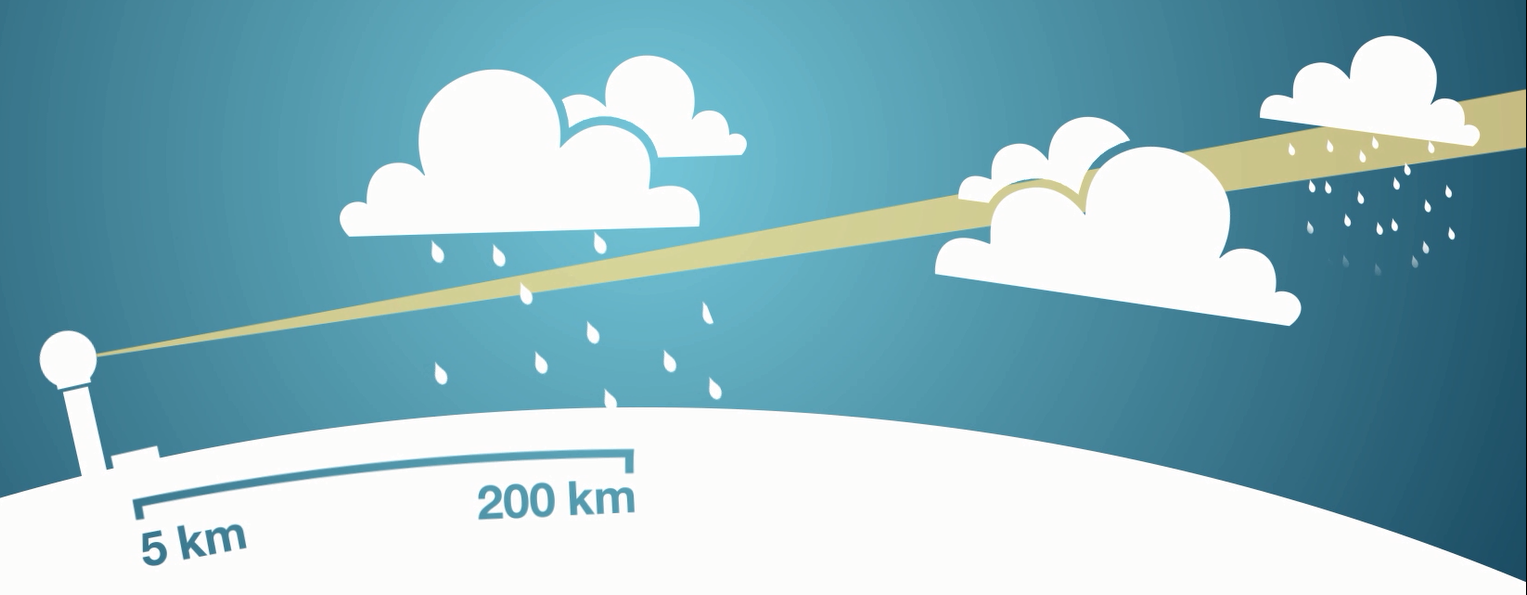Podcast: Play in new window | Download
Subscribe: RSS

Have you applied the idea of situational awareness to weather before? Knowing what the weather was doing, what the weather is now and what it will be in the future. With access to the right weather products and knowing more about how they are developed you can level up your pre-flight weather assessment.
Weather is a contributing factor to a significant number of helicopter accidents. It is easy to see why looking at the photo below – even without considering flying into cloud, just the reduced visibility and the reducing ceiling that poor weather brings with it can up the work rate and concentration that it takes to get the task done.
For many aircrew we stop learning weather theory after qualification and only brush up on it before check rides. And we can get rusty at it. Same goes for making the most of the different weather forecast products that are available for reference before going flying.
In this podcast Matt Johnson walks us through some of the weather briefing considerations and useful briefing products that are covered in the weather training program that is run in-house for Metro Aviation’s several hundred staff pilots. Matt’s own experience covers flying for law enforcement and 12 years in the helicopter aeromedical sector.

One of the things we talk about is the limitations of weather radars especially for lower level flights like many helicopter operations. Due to the curvature of the earth as you move away from the radar ground site the radar picture can fail to show rain areas up to several thousand feet above ground.

Below – This may only be a US aviation product but it is called the HEMS Tool and is avaliable directly off the National Weather Service’s Aviation landing page. It displays a range of information from low level weather forecasts.

Perhaps Matt’s first stop when looking at the weather before coming on shift is the Aviation Forecast Discussion product. This is an amplifying comments area where the forecaster can give additional context and editorial to the normal ‘coded’ style products such as TAFs or area forecasts. It can indicate the possibility of developing weather that wasn’t modelled strongly enough to make it into other forecasts and the forecaster’s thoughts about the upcoming period.

Podcast: Subscribe in iTunes | Play in new window | Download
Links from this week’s episode:
Support the podcast on Patreon
Assessing General Aviation Pilots’ Weather Knowledge and Self-Efficacy – Embry-Riddle Aeronautical University paper, 2017
Short-Comings of Weather Radars – National Weather Service
How does a Weather Radar Work? and Radar FAQs – Bureau of Meteorology

What was your biggest takeaway from this episode? Help yourself remember and share it with others by making a comment about it here below.

This was an outstanding episode. I’m an Air Force Helicopter pilot and have seen first hand what not planning for weather can do. This episode is rather near and dear to me.
First off, before I become a pilot I was a weather officer in the Air Force. I made the change to Rotary wing aviation about 6 years ago and I feel as though I use my weather background more as a helicopter pilot than I did as a Meteorologist.
Next, I graduated with a degree in Applied Meteorology from Embry-Riddle and my mentor/professor helped write the study mentioned. As a student I noticed how many student pilots just didn’t take the topic seriously at all. I’m not sure if it was a lack of interest or a lack of knowledge… or both!
I now train student pilots at the 23rd Flying Training Squadron at Fort Rucker and weather plays into our daily regime. Those that understand it have the capability to exploit it and use it as a great learning experience!
Great episode for sure!!